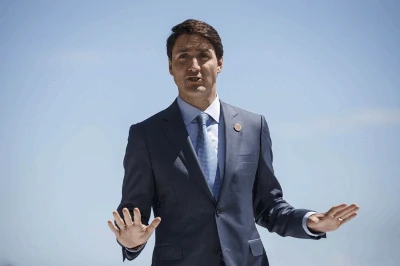Trudeau’s Digital Services Tax threatens taxpayers and the economy

Prime Minister Justin Trudeau managed to do two terrible things in one fell swoop: raise costs for Canadians at a time they can least afford it and risk a trade war with the United States.
The Trudeau government pushed its new Digital Services Tax through Parliament before quitting for the summer.
The government’s DST targets large foreign companies operating online marketplaces and social media platforms earning revenue from online advertising, such as Amazon, Facebook, Google and Airbnb. It is a three per cent tax on all revenue these companies generate in Canada.
Two red flags should pop up immediately for taxpayers. First, these companies won’t just eat the tax without passing costs onto consumers. And second, the United States government is sure to retaliate.
On the first point, there were clear signs that prices for Canadian consumers would increase because of this tax long before it was passed into law.
When the DST was in its proposal stage, the Parliamentary Budget Officer did an estimate of how much the government’s new tax would cost Canadians.
The PBO estimated the government’s DST would lead to an additional $7.2 billion in federal tax revenue over the next five years.
Where is that money coming from?
While major foreign companies will be the ones paying the tax directly, Canadian consumers will be hit with the bill.
It is “expected that businesses in the targeted sectors will adjust their services and prices in response to the new law,” the PBO said.
In other words, Trudeau is imposing a multi-billion-dollar tax on taxpayers – at a time when 50 per cent of Canadians say they’re $200 away from not being able to pay their bills.
Not only is Trudeau’s new DST going to increase costs for consumers, Canada also risks a trade war with the United States over the tax, which would cost Canadians even more.
In the wake of Trudeau’s DST getting through Parliament, the United States Trade Representative warned the U.S. will “do what’s necessary” to respond to the Trudeau’s new tax. USTR Katharine Tai warns she will look at “all available tools” as part of the U.S. response.
Tai’s isn’t the only voice in the U.S. calling for retaliatory action.
The Computer and Communications Industry Association, which represents tech companies like Amazon, Apple and Uber that will be targeted by Trudeau’s new tax, is calling on the Biden administration to fight back.
“With Canada’s DST now law, the time has come to announce [retaliatory] action,” said the association’s vice president, Jonathan McHale.
The president and CEO of the Tax Foundation is warning that U.S. retaliation would likely come through hiking tariffs on imports from Canada.
Given that the U.S. is by far Canada’s largest trading partner, making it more expensive to get Canadian goods into the American marketplace could have a detrimental impact on Canada’s economy, costing us both economic growth and jobs.
More than two years ago, the USTR warned against the Trudeau government taking measures that “single out American firms for taxation while effectively excluding national firms engaged in similar lines of business.”
But Trudeau chose to ignore those warnings and do exactly that.
To add insult to injury, the law authorizing the Trudeau government to bring the DST into effect (whenever it so chooses) allows it to do so retroactively, all the way back to 2022. Companies could be on the hook for huge sums for tax years in which the law didn’t even exist.
No wonder the Americans are threatening to fight back.
The bottom line is that Trudeau has put Canada in a terrible position. He is risking higher prices for Canadians and tariffs on our exports to the U.S. market, all in a lust for more cash. And the revenue the government is likely to bring in through the DST, an average of $1.4 billion a year, would be spent by this government in just one day.
It’s not too late for Trudeau to back down. Cabinet could choose not to bring the tax into force and avoid retaliation from the US.
For the good of taxpayers and the Canadian economy, Trudeau must abandon the DST.